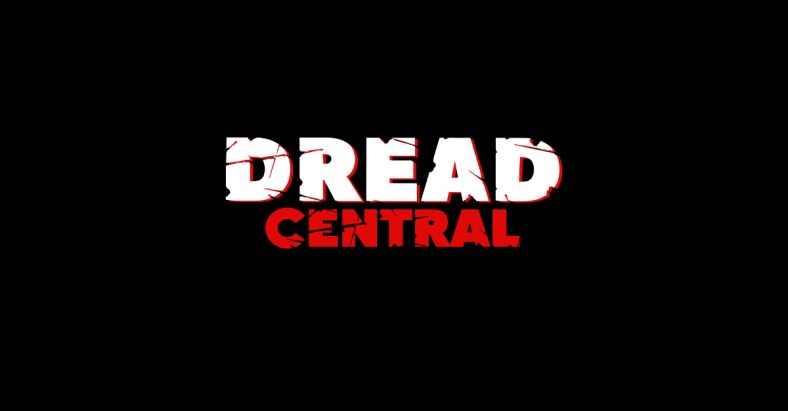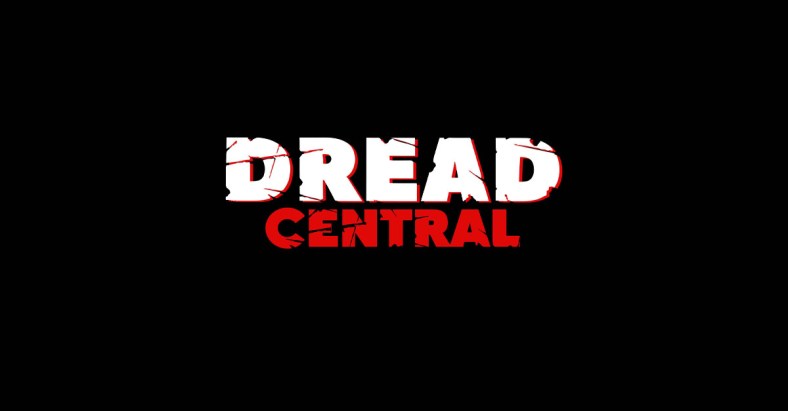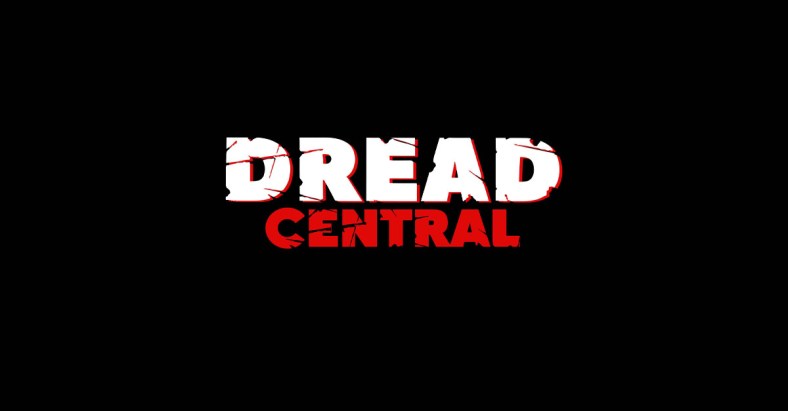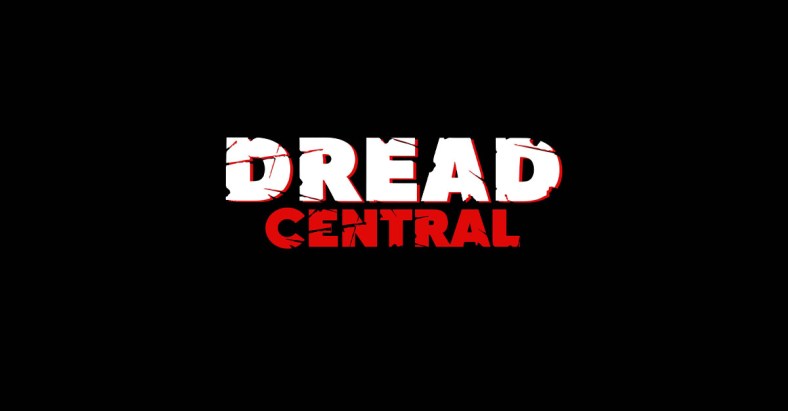The Mummy – Exclusive Interview With Director Alex Kurtzman

Although The Mummy (review) is only Alex Kurtzman’s second feature film directing credit, he’s credited with writing some pretty huge blockbusters (Star Trek Into Darkness, The Amazing Spider-Man, and the list goes on) so he’s savvy on entertainment for the masses. And the masses have been looking forward to this particular Mummy reboot for some time now. We got the chance to chat with Kurtzman on how it feels to finally have all that expectation come to fruition, what it was like to have a hand in creating Universal’s Dark Universe franchise, and of course, directing megastar Tom Cruise.
Dread Central: It must be quite something to have this legendary canon as part of your resume. Was it at all intimidating?
Alex Kurtzman: It is but at the same time, I feel the way [most people] do about it. I’ve loved them since I was a kid and I just think it’s a special and unique world. The idea of getting to play in that world and to bring it to a modern audience, while honoring the classic, was too good to pass up, as much as it terrified me and I didn’t want to mess it up.
DC: How did you find that balance?
AK: I think for me, part of why I love them so much is that there is this amazing kind of mix of feelings that you have for those classic films – forget about the beauty of the filmmaking and the incredible actors that played the parts. To me the universe is defined by being scared by the monster and feeling tremendous sympathy for the monster. I thought to be able to make a big studio film, that had all the requirements of that, but to do it in a way where the assumption is that the character is broken and there is no expectation that the character can get fixed. Because if they get fixed they’re not a monster anymore. That is really cool and different and just an exciting arena to play in. I’m a huge fan of horror and I basically gobble up any horror movie, the wonderful and the terrible ones. I just want to watch it. I think the tricky thing is that horror is often very small and that’s what makes it great, so figuring out how to use that with scope and scale was kind of a new challenge. I like that challenge and I think it’s just a matter of knowing when you’re secure in the balance of filmmaking, so that you can actually deliver big adventure, but when you make the segue into horror, it feels like it is part of a whole, connected, unlike two things colliding into each other.

(L to R) TOM CRUISE as Nick Morton and director/producer ALEX KURTZMAN on the set of “The Mummy,” a spectacular, all-new cinematic version of the legend that has fascinated cultures all over the world since the dawn of civilization. From the sweeping sands of the Middle East through hidden labyrinths under modern-day London, “The Mummy” brings a surprising intensity and balance of wonder and thrills in an imaginative new take that ushers in a new world of gods and monsters.
DC: Your villain, the Mummy herself, has double-irises. They did that on “The Exorcist” TV show, and I think some other movies as well. What’s the story behind this look in your case?
AK: I’ve never seen that; did they do that on “Exorcist” the television show? I read an interesting article that said it represented the evil eye, and I was looking for something different and original. We’ve seen so many eye things in horror movies. You see contacts, dark pupils, no pupils, red eyes, all that stuff, and I just wanted the idea of that and because it has story value to connect it.
DC: What about An American Werewolf in London? I felt like a saw an homage or two there, as well.
AK: Absolutely. American Werewolf in London is one of my favorite films. What I love about it is its absolutely seamless connection between humor and horror and the way they work together so beautifully. I think American Werewolf perfectly understands the rules of a werewolf movie, kind of plays with them and re-invents them in a modern context. It’s clearly a movie that was done with so much love and reverence, so it’s one of my all-time favorite films.
DC: Of course, CGI is unavoidable on a big picture like this, but is some practical as well?
AK: Yes, we wanted to as much practical effects as we could do and use CGI to augment as opposed to being the driving force behind the filmmaking, back to an almost low-fi approach to the film. These are classic films and I think to bring a classic sensibility and marry that with something modern was critical for me. In the case of the underwater sequence, we could have done all those mummies as CGI characters but you would have felt it, so we spent about six months working with incredibly brilliant dancers developing movement and strange kind of odd, weird movements. Once we got the movement down we ended up removing the hand and the head, so what you’re looking at, replacing those with CGI, is real moving bodies which is why it feels so real. And then with the head and hand replacement, you can create a world where you can’t really tell the difference because the human eye, it’s very hard to trick it, so the hardest part would be to actually build the movement in CGI. You would have felt something wasn’t quite right about it, so it was all about keeping it as grounded as we could.
DC: We know you wrote one of the Mission Impossible movies, and that you know Tom Cruise. How was it actually directing him and collaborating with him?
AK: I’ve worked with him now for almost ten years. We love to create an experience on film where you can get completly involved in the experience and forget you’re watching a film. That’s always the goal, and I think the best way to do that is, like I said, to do it practically. He’s worked with the greatest directors in the world, and this is only my second film so I had a lot to learn. I feel like I inherited his wisdom in the form of all the other directors he’s worked with. He’s an open book, so how did Kubrick do this or how did Scorsese to that or how did Oliver Stone do this? We talked through all those things and he was an amazing teacher, in a way. He puts his trust in you completely, he makes a handshake agreement with you and he says, ‘I will do what you ask of me’ and there was never a single moment where I asked him to do something and he didn’t want to do it. He’s an actor who is happiest when he’s being directed, and he loves that. It was a wonderful partnership there and to inherit the benefit of all of that was a gift and I think a gift for any director.
DC: He looks the part.
AK: You know it’s interesting, I don’t know that I look at actors and think ‘You would be the perfect x or y.’ I think it’s more about saying whenever you play a part I realize that you chameleon right in to whoever you’re playing, and I forget that you’re the actor playing the part. When you have actors who are that talented like [Michael] Fassbender, who just dissolves completely into the experience and the character we forget who he is and honestly, you could probably take your pick and he could make it work. I think the other thing for me is that for an actor, you want to tailor a part to their strength, it’s not like ‘OK, now we’ll cast Michael Fassbender,’ just randomly say as The Wolfman, ‘let’s make sure he does the script,’ it’s more like how do you harness the spirit of that actor and what they see and feel, than adjust the character to make that work so then one becomes the other… does that make sense?
DC: Annabelle Wallis is well-cast as the archeologist. What did she bring to the table, for you as the director?
AK: I had seen Annabelle’s work in “Peaky Blinders” and thought she was fantastic. Obviously she has tremendous range and weight, and at the same time I think part of the swashbuckling element is the humor in there. When I first met Annabelle and she walked into the room she just brought this light. Often as a director you’re not looking at how the actor delivers the lines, although obviously that’s important, you’re looking for what they do between the lines and who they are. In the same way I just said I want to take the actor and help them become the part and vice versa, you’re looking at who this person is who just walked in. She has this incredibly natural charm that reminded me of a screwball comedy, actually. She’s a goofball, and I thought what an interesting thing to be able to marry her strength with her humor. It’s not something I see very often and I think harkens back to some of my favorite films, my favorite classic actresses. I love that about Annabelle. She’s just a delight to work with and she really is tireless. Between the pace and the physical demands of the film, she never ever complained, she just dove in. I adore her, and I adore working with her.
DC: How does Russell Crowe fit in, as Dr. Jekyll and Mr. Hyde?
AK: There was a lot of conversation and debate early in the process about bringing Jekyll into a Mummy movie, because it’s not necessarily an intuitive idea. We were constantly asking ourselves: how do we deliver something new to the table? What we wanted to do was obviously give you a satisfying Mummy movie experience on its own terms which would open the door to the Dark Universe and plant seeds and not be overwhelming; we thought that would be the way to go. What you don’t want to do is smash characters together, or just have them together. I tend to react negatively to that. I can’t imagine what it would be like for an audience member sitting in a theater, so there was a lot of debate about whether or not to put him in the film. Once we came to the idea that part of the storytelling would be about the fact that the Mummy was in a larger world of gods and monsters, it became very clear that we were going to need somebody to help us understand that. You’d like that person to have their own relationship with good and evil and obviously there’s an almost medical side to this now, because in the modern world we’ve been interpreting monsters medically and in science, so you begin to describe Dr. Jekyll. But even more than that, he acts as a mirror to Nick’s character. Dr. Jekyll has been where Nick is going, he has good and evil inside of him and the minute you can justify it in story terms – say not only is he here to guide Nick through all the gods and monsters, but it acts to echo his character, now you have a very strong lead-in to have him in the film. So that excited me, and once we made that connection it felt like an organic way to go. Absolutely, he will be back in many of the monster films. The idea of this organization that has been researching and hunting and protecting and destroying, depending on the monster, [makes sense]. The idea that Jekyll will come in throughout many of the films to help guide some of the characters through the experience in the world they are suffering in, for sure, we’d love to bring him back.
DC: We saw a few “Easter Eggs” sprinkled throughout the film. How did you decide where they would go and which ones to use?
AK: Well, the trick with “Easter Eggs” is you want them to land at the right moment in the right way, otherwise fans will reject them. I remember when we were doing Star Trek, there are obviously classic Trek lines that you are just waiting for and the trick is to figure out how to deliver them in an unexpected way but in a very organic one. You just want to decorate all the scenes with the goodies from the monster universe but the idea that we experience them through Tom’s point of view as he enters into this world felt like the right place to do it, so that is where we began.
DC: In our press screening a lot of people waited throughout the credits – which were so long! – to get that teaser at the end. But there was none. How come?
AK: It’s funny you ask that, and many people have. It was a conscious choice. I feel like Marvel has kind of taken that domain, it’s kind of a staple of Marvel films, and I did not want to take that from them, to have it feel like we were copying anything. At the same time, just by the virtue of you asking that question, other people asking the question, I feel like people want it so it’s something that I’ll reconsider when we do the next one.
Tom Cruise headlines a spectacular, all-new cinematic version of the legend that has fascinated cultures all over the world since the dawn of civilization: The Mummy. The cast also includes Annabelle Wallis, Jake Johnson, Courtney B. Vance, Russell Crowe, and Sofia Boutella as the titular character.
The creative team on this action-adventure event is led by director/producer Alex Kurtzman and producer Chris Morgan. Sean Daniel, who produced the most recent Mummy trilogy, produces alongside Kurtzman and Morgan. The script is by Jon Spaihts and Christopher McQuarrie.
Look for The Mummy in theaters on June 9, 2017. For more info in the meantime, keep your eyes on themummy.com.
Synopsis:
Thought safely entombed in a tomb deep beneath the unforgiving desert, an ancient princess (Boutella) whose destiny was unjustly taken from her is awakened in our current day, bringing with her malevolence grown over millennia and terrors that defy human comprehension.
From the sweeping sands of the Middle East through hidden labyrinths under modern-day London, The Mummy brings a surprising intensity and balance of wonder and thrills in an imaginative new take that ushers in a new world of gods and monsters.



Categorized: News
